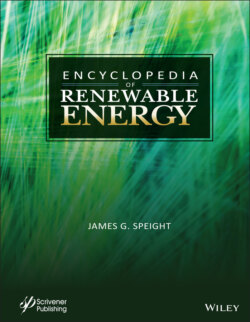Читать книгу Encyclopedia of Renewable Energy - James Speight G., James G. Speight - Страница 267
Butane
ОглавлениеButane is a gaseous component of natural gas. Butane can also be produced from crude oil. Butane gas (n-butane) is the four-carbon unbranched alkane (CH3CH2CH2CH3). Butane is also used as a collective term for n-butane together with its only other isomer, iso-butane [methylpropane, CH(CH3)3]. Butanes are highly flammable, colorless, odorless, easily liquefied gases.
Butane is sold bottled as a fuel for cooking and camping. When blended with propane and limited amounts of other hydrocarbon derivatives (subject to the specifications), it is referred to commercially as liquefied petroleum gas. It is also used as a gasoline component and as a feedstock for the production of base petrochemicals in steam cracking, as well as a propellant in aerosol sprays.
Very pure forms of butane, especially iso-butane, can be used as refrigerants and have largely replaced the ozone layer-depleting halomethanes in household refrigerators and freezers. The flammability of butane is not usually an issue because the amount of butane in an appliance is not enough to cause a combustible mix given the amount of air in a room.
